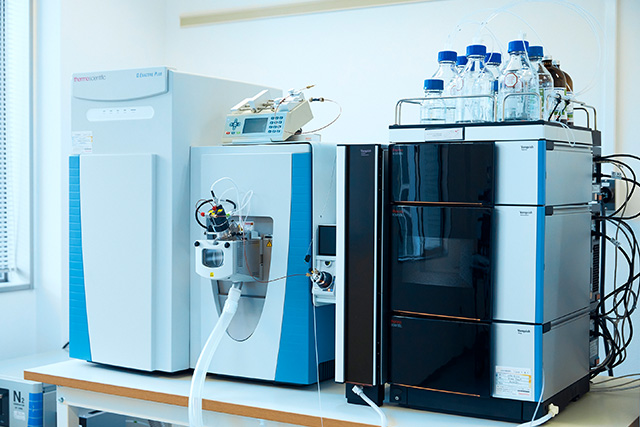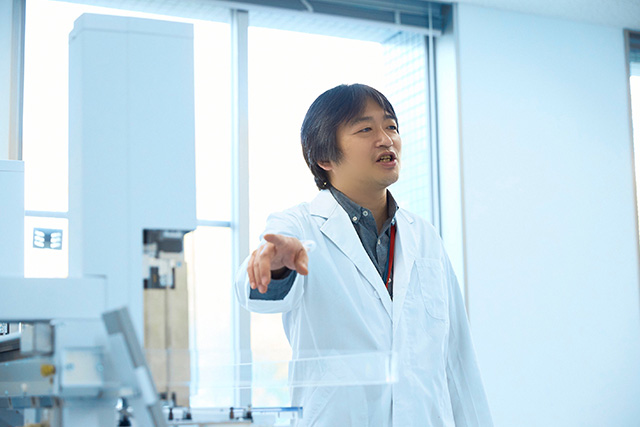Hydrogen/deuterium exchange mass spectrometry (HDX-MS)
In developing biopharmaceuticals, especially antibody drugs, the epitope site on the antigenic side that binds to the antibody must be identified in a short time. In the development of biosimilars, it is necessary to confirm equivalence through higher-order structural comparisons with prior biopharmaceuticals and to evaluate lot-to-lot differences in a three-dimensional structure.
Hydrogen/deuterium exchange mass spectrometry (HDX-MS) is a technique that monitors the exchange reaction of amide protons generated by proteins in heavy water from hydrogen to deuterium over time. This technique reveals structure changes and sites of protein-protein interactions.
HDX-MS has no restriction on the molecular weight of the target protein. It does not require labeling or crystallization and can reveal the interaction sites of protein complexes more rapidly than X-ray crystallography.
U-Medico offers epitope determination, protein-protein interaction analysis, and assessment of biosimilar comparability using HDX-MS.

HDX-MS

Mass Spectrometry
Post-translational modifications such as oxidation, disulfide, and deamidation are evaluated by peptide mapping using LC-MS/MS.
Native MS
By increasing the vacuum of the chamber in the mass spectrometer, it is now possible to determine the molecular weight of the protein-ligand complex without breaking the non-covalent interactions through gentle desolvation. This method is referred to as MS under non-denaturing conditions or native MS and allows clear determination of protein-ligand interactions.
